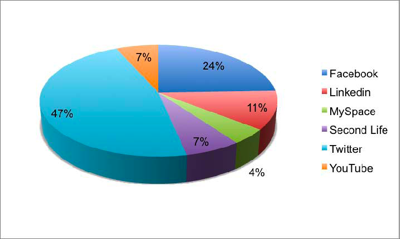I’ve mentioned before about how great it is that ForumOne does focused, relevant, and interesting research on the online community market, and their most recent report is no exception. They just released the Online Community Compensation Study results a week ago. Since I participated in the study, I was able to get a free copy of the entire report, but Bill does a great job of summarizing the key points in his blog post.
The entire study was great, but I was particularly fascinated by two pieces of information:
- Salary ranges are all over the board
- Women’s salaries are quite a bit less than men’s
Salary Ranges for Community Managers

I’ve always said that community manager salaries cover a broad range, but I was surprised by exactly how broad the range is. My advice to people about community manager salaries is that community managers tend to make $50,000 to $150,000 per year; however, I was really surprised that it wasn’t more of a bell curve. I was expecting to see a few people around $50k, a few people in the $100k+ range and most of the community managers in the $75k range, but the real numbers are nothing like this imagined bell curve as you can see from the graph above.
The number of people in $150k salary range compared to the other salaries was the most surprising of all; however, I expect that these people fall into two groups:
- people in higher level strategic positions in corporate environments who head a large organization responsible for the growth and management of multiple communities.
- community managers with name recognition or internet celebrity status working in high profile positions as community evangelists
The lower salary ranges, while I didn’t expect them, are actually less surprising. I suspect that many people volunteer their time to help manage communities for little or no salary. The lower end of the range is also likely to include people managing small communities on a part-time basis or in startups.
In general, community managers for technical communities (developers, etc.) tend to make more than end user, social communities. Salary also changes significantly depending on whether the role is really more low-end, tactical moderation or something more strategic, like building a new community or revitalizing a troubled community site. Job experience, scope, management responsibilities, location and how well known the person is can also make a big difference in the salary range as mentioned above.
Salary by Gender

Unfortunately, women are making less than men by what seems like a large margin to me. I’m not even going to speculate on why this might be true because they would just seem like the same old clichés and excuses that we’ve been using since women first entered the workforce. I’ll just say that this makes me sad.
Disclaimer: The graphs come from the research conducted by ForumOne; however, my analysis and commentary is highly speculative based on what I know of the industry, not the data in the report.
For more info
Bill does a great job of summarizing the rest of the key points along more information about the demographic breakdown in his blog post. I would also encourage you to take a look at the Online Community Report blog to learn more about the research at ForumOne. They have some very interesting studies and are doing more detailed research into online communities than any other companies I’ve found so far.
Related Fast Wonder blog posts

 I am excited to announce that our first Olliance webinar will be on the topic of Online Communities: The “Secret Sauce” for Today’s Competitive Businesses. On November 17th, I will be leading a discussion about defining your online community strategy, best practices for participation, and effective community content planning.
I am excited to announce that our first Olliance webinar will be on the topic of Online Communities: The “Secret Sauce” for Today’s Competitive Businesses. On November 17th, I will be leading a discussion about defining your online community strategy, best practices for participation, and effective community content planning.


